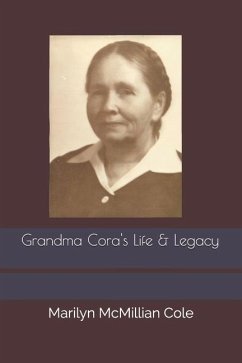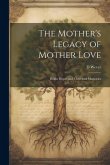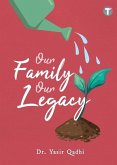The daughter of a Confederate Civil War veteran, Ida Tekoa Mixon was born in Pickens County, Alabama on New Year's Day 1884. Her father Benjamin Franklin Mixon married Mary Caroline Shackelford soon after his release as a prisoner of war in a Union camp at Memphis at the war's end. Eleven children were born to their union. Ida Tekoa was the ninth child, but four had died as infants prior her birth and two little brothers died while yet young children. Living with her parents for ten years after the other children married, Ida and her parents developed bonds of harmony and faith. Renter farmers, they moved frequently and her education ended at about fourth grade. So when she married Robert W. McMillian after a brief acquaintance, her tools of preparedness was composed primarily of a trusting heart, a firm belief in God and a love for his Word, and a thorough acquaintance with hard work and frugality. Twenty-seven years her senior, Robert had a large bottom-land farm and four teenage sons from a previous marriage. Or was it five sons? In the sixteen years of their marriage Ida Tekoa, or Cora, as she was later called, like her mother gave birth to eleven children. She was blessed that all eleven lived till their late teens. Her first born son died in an industrial accident at seventeen. Two months later, her oldest stepson took his own life. Sixteen months later, her second son, then also at seventeen years of age, apparently couldn't deal with life on the farm and took his own life as well. Farming was a lot of hard work and for very meager income. But for every new growing season, there was the hope that the acres could yield more abundantly, the prices for the crops would be higher, and the farm debts could be paid off. The youngsters were typically listed on census enumerations as farm laborers from age seven till they left home, and growing cotton, corn, sorghum, ribbon cane and a kitchen garden for the family table involved so much work there were hardly enough daylight hours to get the tilling, planting, cultivating, harvesting and storing or marketing of the products completed before it was time to begin again for the next growing season. Then when farming profits were at lowest ebb Grandfather Robert became seriously ill and died in 1932. When the status of the farms financial status became clear to Grandma Cora, she turned again to the only resources she knew intimately. Faith in God, the promises of his Word, love for her family, how to till the soil, and an expectation to work hard. She left the farm and she an her children struggled for the two decades to find a home and earn their bread. Sometimes they did, but sometimes it was just turnip greens with corn pone and lots of water for extra pot liquor. The basic ingredients for Grandma Cora, faith and trust in God, integrity, frugality, and hard work were what she knew. Those were enough to help her find a way through the rugged paths, and in the process, teach her young children to embrace those same values into the fiber of their souls. What a legacy she left to all of us.
Hinweis: Dieser Artikel kann nur an eine deutsche Lieferadresse ausgeliefert werden.
Hinweis: Dieser Artikel kann nur an eine deutsche Lieferadresse ausgeliefert werden.








